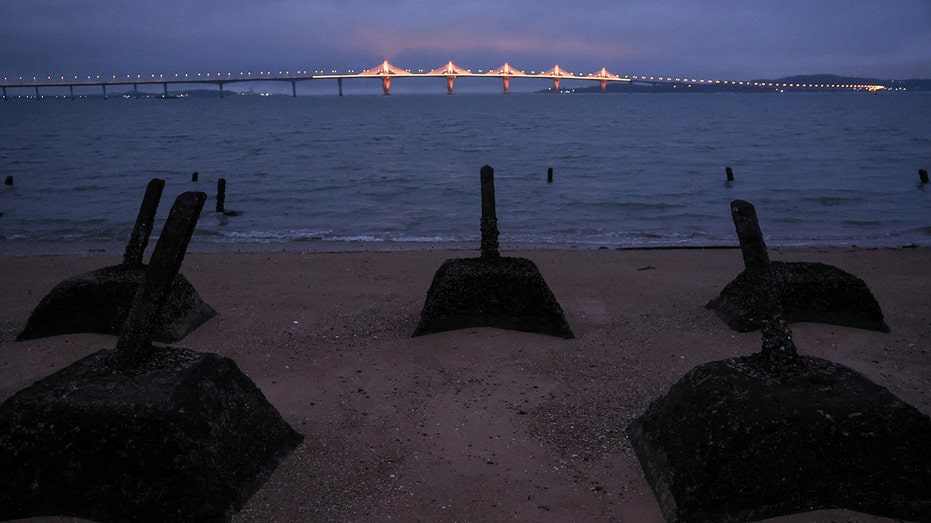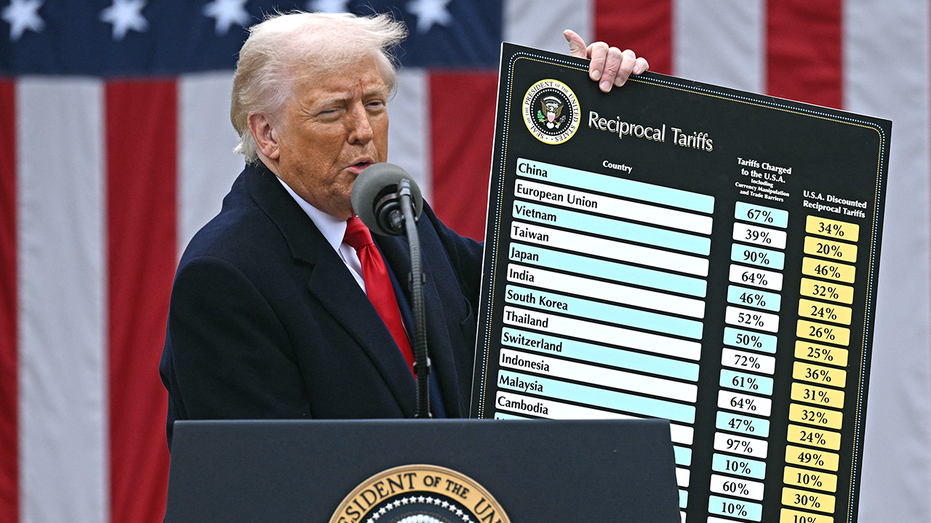Taiwan on Tuesday drove away a Chinese coast guard boat that entered waters near its sensitive frontline islands, in a rise in tensions a day after China’s coast guard boarded a Taiwanese tourist boat that a Taiwan minister said has triggered “panic”.
A Chinese coast guard boat, numbered 8029, entered Taiwan’s waters near Kinmen on Tuesday morning, Taiwan’s coast guard said in a statement, adding it dispatched a boat and used radio and broadcast to drive away its Chinese counterpart, which left the area an hour later.
Taiwan’s coast guard said it will continue to use radar, surveillance and patrols to ensure the “harmony and safety” near the waters of Taiwan-controlled Kinmen islands, which are close to China’s shores.
Taiwan, which China claims as its own territory despite the island’s rejection, has been wary of efforts by Beijing to ramp up pressure on Taipei following the election last month of Lai Ching-te as president, a man Beijing views as a dangerous separatist.
TAIWAN PROTESTS AFTER CHINESE COAST GUARD BOARDS TOURIST BOAT NEAR KINMEN ARCHIPELAGO
China announced on Sunday that its coast guard would begin regular patrols and set up law enforcement activity around the Kinmen islands, following the death of two Chinese nationals fleeing Taiwan’s coast guard having entered into restricted waters too close to Kinmen.
Six Chinese coast guard officers on Monday boarded a Taiwanese tourist boat carrying 11 crew members and 23 passengers to check its route plan, certificate and crew licences, leaving around half an hour later, Taiwan’s coast guard said.
“We think it has harmed our people’s feelings and triggered people’s panic. That was also not in line with the interest of the people across the strait,” Kuan Bi-ling, head of Taiwan’s Ocean Affairs Council, told reporters on the sidelines of parliament in Taipei on Tuesday.
China’s coast guard, which has no publicly available contact details, has yet to comment. China’s Taiwan Affairs Office did not immediately respond to a request for comment.
Kuan said it was common for Chinese and Taiwanese tourist boats to accidentally enter the other side’s waters.
“Boats like these are not illegal at all,” she said.
Kinmen is a short boat ride from the Chinese cities of Xiamen and Quanzhou and has been controlled by Taipei since the defeated Republic of China government fled to Taiwan in 1949 after losing a civil war with Mao Zedong’s communists, who set up the People’s Republic of China.
Kinmen is home to a large Taiwanese military garrison, but it is Taiwan’s coast guard which patrols its waters.
Taiwan Defence Minister Chiu Kuo-cheng told reporters in parliament that to avoid a further rise in tensions the military will not “actively intervene” in the incident.
“Let’s handle the matter peacefully,” he said. “Not escalating tensions is our response.”
China says it does not recognise any restricted or banned zones for its fishermen around Kinmen.
China’s military has over the past four years regularly sent warplanes and warships into the skies and seas around Taiwan as it seeks to assert Beijing’s sovereignty claims, and has continued to do so following last month’s election.
However, a senior Taiwan security official, speaking on condition of anonymity as they were not authorised to speak to the media, told Reuters they believe China did not want to turn what was happening around Kinmen into an “international incident”.
The official said Beijing seized on the Kinmen incident with the deaths of the two Chinese nationals as an “excuse” to further pile pressure on Lai.
The pressure has also included Taiwan losing one of its few remaining diplomatic allies Nauru to China and a change in a flight path in the Taiwan Strait.
But China was likely to continue increasing pressure on Taiwan ahead of Lai’s May 20 inauguration, the official added.
Chinese state media said Quanzhou Red Cross officials, accompanied by family members, arrived on Kinmen on Tuesday to bring home the two survivors from the boat which had overturned when it tried to out-run Taiwan’s coast guard last week.
China has never ruled out using force to take control of democratically-governed Taiwan. President-elect Lai and Taiwan’s government reject Beijing’s sovereignty and say only the Taiwanese people can decide their future.




